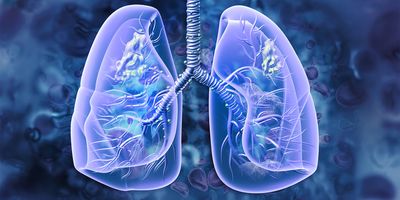The Importance of Lung Cancer Screening: Early Detection Saves Lives
Pulmonary Cancer is a formidable adversary, accounting for more deaths than breast, colon, and prostate cancers combined. The grim statistics surrounding this disease underscore the urgency of early detection and intervention. This article will explore the significance of lung cancer screening, emphasizing how it can significantly impact the lives of vulnerable people.
Understanding Lung Cancer
Pulmonary Cancer: The Silent Killer
This cancer often remains asymptomatic in its early stages, quietly advancing before any noticeable symptoms emerge. This silent progression is why it’s often diagnosed at an advanced, less treatable stage. To combat this, it’s crucial to understand that early detection can be a game-changer.
The Impact of Late-Stage Diagnosis
Late-stage Pulmonary Cancer carries a grim prognosis. The five-year survival rate for this cancer detected at an advanced stage is only around 5%. This means that the majority of individuals diagnosed in such a state face a limited chance of survival. In contrast, the survival rate for those with early-stage Pulmonary Cancer can be as high as 90%.
The Role of Pulmonary Cancer Screening
What Is Pulmonary Cancer Screening?
Lung screening involves using low-dose computed tomography (CT) scans to detect early signs of cancer in high-risk individuals. High-risk individuals typically include those with a history of smoking or exposure to certain environmental factors.
Early Detection Saves Lives
1. Increased Survival Rates: The primary goal of this cancer screening is to identify tumors when they are small and localized. The likelihood of effective therapy and long-term survival is greatly increased as a result.
2. Less Aggressive Treatment: When this cancer is detected at an early stage, less aggressive treatments, such as surgery or localized radiation therapy, can be employed. This raises life satisfaction and lessens the negative consequences of more comprehensive medical procedures.
3. Lower Healthcare Costs: Early detection not only saves lives but also saves healthcare costs. Treating advanced-stage pulmonary cancer is considerably more expensive than treating it at an early stage. By investing in screening programs, healthcare systems can potentially save billions of dollars.
Who Should Consider Pulmonary Cancer Screening?
Identifying High-Risk Individuals
1. Current or Former Smokers: Individuals aged 55 to 80 with a smoking history are at high risk. Even if you quit smoking years ago, you may still be eligible for screening if you meet other criteria.
2. Exposure to Environmental Toxins: People with a history of exposure to radon, asbestos, or other carcinogens should also consider this cancer screening.
3. Family History: If you have a family history of this cancer, especially in a first-degree relative, you may be at an increased risk and should discuss screening with your healthcare provider.
Benefits of Screening
1. Early Detection: As emphasised earlier, the primary benefit of screening is the early detection of Pulmonary Cancer, dramatically improving survival chances.
2. Peace of Mind: Regular screening can offer peace of mind to high-risk individuals, knowing that they are actively monitoring their lung health.
Conclusion
Lung Cancer is a formidable opponent, but it is a powerful ally in the form of early detection through screening programs. The importance of this cancer screening cannot be overstated, as it offers the potential to save countless lives and reduce the burden of this devastating disease on individuals, families, and healthcare systems. If you or a loved one falls into the high-risk category, don’t hesitate to discuss pulmonary cancer screening with your healthcare provider. Early detection can indeed be a lifesaver. Remember, when it comes to Pulmonary Cancer, the sooner you know, the better your chances of survival.




